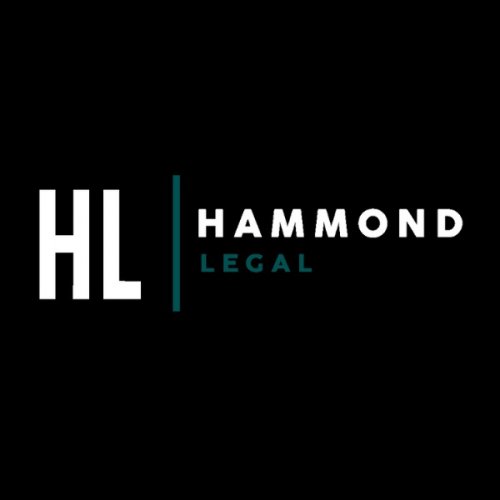Best Drugs & Medical Devices Lawyers in Albany
Share your needs with us, get contacted by law firms.
Free. Takes 2 min.
List of the best lawyers in Albany, Australia
About Drugs & Medical Devices Law in Albany, Australia
The legal landscape surrounding drugs and medical devices in Albany, Australia, is a comprehensive framework designed to ensure the safety, efficacy, and quality of products available to consumers. This includes the regulation of pharmaceuticals, medical devices, and other therapeutic products. The regulatory environment is governed by both federal and state laws, with various agencies playing key roles in oversight and compliance. In Albany, professionals dealing with these products must adhere to strict regulations to prevent public health risks and ensure consumer safety.
Why You May Need a Lawyer
Individuals and businesses alike may find themselves in need of legal advice concerning drugs and medical devices for several reasons. Common situations include navigating regulatory compliance, addressing potential liability issues for defective products, understanding intellectual property rights related to drug formulations or medical device patents, and managing product recalls. Furthermore, healthcare professionals and companies may require assistance in dealing with enforcement actions from regulatory bodies or in defending against consumer lawsuits alleging harm from medical products.
Local Laws Overview
Albany falls under the jurisdiction of Western Australia laws, which operate alongside federal laws concerning therapeutic goods. Key aspects include the Therapeutic Goods Act 1989, which outlines the legal requirements for the supply of medicines and medical devices, and the obligations under state public health regulations. Efforts are focused on consumer protection through strict labeling, marketing, and distribution requirements, alongside quality assurance protocols for manufacturing processes. Breaches of these laws can result in significant penalties, including fines and restrictions on business operations.
Frequently Asked Questions
What types of products are considered medical devices?
Medical devices include a wide range of products, from simple bandages to complex machinery like MRI machines, which are used for medical purposes.
How are drugs regulated in Australia?
Drugs in Australia are primarily regulated by the Therapeutic Goods Administration (TGA), which ensures products meet high standards of safety and efficacy before they can be marketed.
What is the role of the TGA in drug approval?
The TGA assesses therapeutic goods for quality, safety, and performance, approves products for entry onto the Australian Register of Therapeutic Goods (ARTG), and monitors their use through post-market surveillance.
Can I sell a medical device without certification?
No, before you can legally supply a medical device in Australia, it must be included in the ARTG and meet specific regulatory requirements set by the TGA.
What should I do if I suspect a drug or device is causing harm?
If you suspect harm, it is crucial to report it to the TGA and consult a lawyer to understand your rights and potential legal actions you can pursue.
Are there specific laws regarding the advertising of pharmaceutical products?
Yes, advertising of pharmaceutical products is highly regulated to ensure that it is not misleading and promotes safe use, following the guidelines provided by the TGA.
How do I handle a product recall?
Product recalls entail notifying customers and health professionals about the defect, managing returns, and correcting the issue. A lawyer can assist in communicating with regulatory bodies efficiently.
What legal steps should I take if my product has been deemed non-compliant?
First, review the specific compliance failures and work on corrective actions. Consulting a lawyer can help in navigating communication with authorities and avoiding further legal issues.
How do intellectual property laws apply to pharmaceuticals?
Intellectual property laws, including patents, protect the formulation and production processes of pharmaceuticals, preventing unauthorized manufacture and sale.
What actions can be taken against counterfeit drugs?
Legal actions against counterfeit drugs may include reporting to the TGA, seeking injunctions, and pursuing civil litigation for damages caused by the counterfeit products.
Additional Resources
For more information, consider reaching out to the following resources:
- Therapeutic Goods Administration (TGA): The national body responsible for regulating therapeutic goods.
- Department of Health Western Australia: Provides local public health regulations and guidelines.
- Medicines Australia: Offers industry insights and guidelines for pharmaceuticals.
- Australian Regulatory Guidelines for Medical Devices (ARGMD): Assists understanding compliance for medical devices.
Next Steps
If you require legal assistance regarding drugs & medical devices, consider the following steps:
- Identify the nature of your legal issue and gather relevant documentation.
- Seek referrals for lawyers who specialize in drug and medical device regulations.
- Consult with a qualified lawyer to discuss your situation and develop a legal strategy specific to your needs.
- Stay informed about the latest regulations and updates in the field to remain compliant and protect your interests.
Lawzana helps you find the best lawyers and law firms in Albany through a curated and pre-screened list of qualified legal professionals. Our platform offers rankings and detailed profiles of attorneys and law firms, allowing you to compare based on practice areas, including Drugs & Medical Devices, experience, and client feedback.
Each profile includes a description of the firm's areas of practice, client reviews, team members and partners, year of establishment, spoken languages, office locations, contact information, social media presence, and any published articles or resources. Most firms on our platform speak English and are experienced in both local and international legal matters.
Get a quote from top-rated law firms in Albany, Australia — quickly, securely, and without unnecessary hassle.
Disclaimer:
The information provided on this page is for general informational purposes only and does not constitute legal advice. While we strive to ensure the accuracy and relevance of the content, legal information may change over time, and interpretations of the law can vary. You should always consult with a qualified legal professional for advice specific to your situation.
We disclaim all liability for actions taken or not taken based on the content of this page. If you believe any information is incorrect or outdated, please contact us, and we will review and update it where appropriate.








